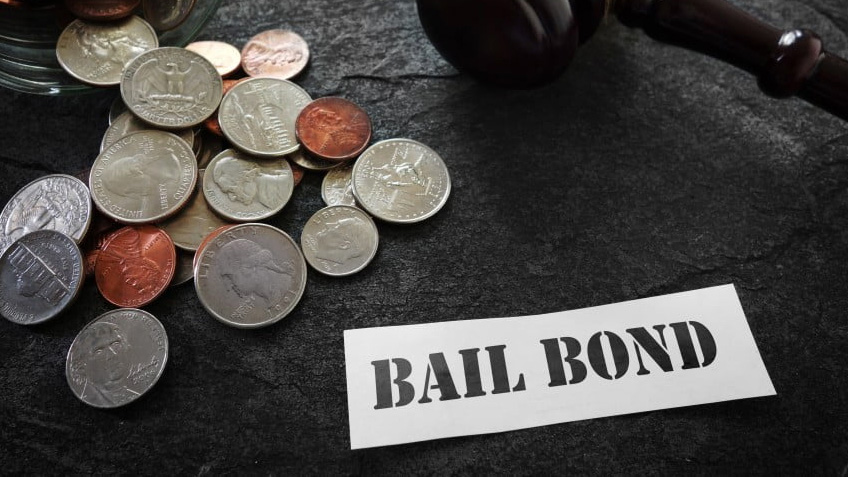It’s 2am and a phone rings in a quiet Durham home. It’s a loved one in jail and they need help. You’ve heard of bail but what does it mean? The court has set an amount that’s too high to pay in cash and panic is setting in. At this moment the legal term “surety bail bond” comes to life. It’s more than just paperwork; it’s a lifeline that can get you out of jail while you await trial. The role of the surety bond is critical but many don’t fully understand how it works. In this guide we’ll break down the definition, the legal framework and the exact steps to get a surety bond so you can have clarity and peace of mind.
Need the best surety bail bondsman Durham? Look no further than JC Bail Bondsman.
What is a Surety Bail Bond?
A surety bail bond is an agreement between the court, a bail bondsman and a third party, usually a defendant’s family or friend, known as an indemnitor. This bond allows a defendant who can’t afford to pay the full bail set by the court to be released from jail before their trial. Instead of paying the full bail in cash, the defendant or their loved ones pay a percentage, usually 10%, to a bail bondsman. In return the bail cash only bondsman guarantees the full bail to the court if the defendant fails to show up for their court dates.
A surety is the entity that assumes the responsibility of another. In this case the bail bondsman is the surety, they promise to pay the full bail if the defendant flees. This allows the defendant to prepare their case without the financial burden of paying the full bail upfront.
Definition and Types of Bail Bonds
There are many types of bail bonds but surety is the most common.
- Cash Bail: As the name says, you pay the full bail in cash. For many this is not practical due to the cost.
- Property Bond: You can use property as collateral. If the defendant doesn’t show up to court the property can be seized.
- Surety Bond: The most common option, a bail bondsman steps in and covers the full bail in exchange for a non-refundable fee, usually 10% of the bail.
For example, if a judge sets bail at $50,000, you can pay $5,000 to a bail bondsman like JC Bail Bondsman and they will cover the rest and get your loved one out. This is especially helpful for people in cities like Durham where bail is high.
Entities in a Surety Bail Bond
- Defendant: The person charged with the crime.
- Bail Bondsman: The agent.
- Indemnitor: The person who co-signs or guarantees the bail.
- Court: The entity hearing the case.
Collateral: Property used to secure the bond.
The Legal Basis for Surety Bail Bonds
The legal basis for surety bail bonds is criminal law and constitutional law. Bail is to ensure an accused can be released from custody while awaiting trial without posing a risk to public safety or the court process. The 8th Amendment of the U.S. Constitution says excessive bail shall not be required, but the amount is up to the court’s discretion based on several factors.
Bail Setting
When someone is arrested they go to a bail hearing where a judge sets the bail. This is based on:
- The crime committed.
- The defendant’s prior record.
- The defendant’s ties to the community.
- The risk of the defendant fleeing the jurisdiction.
If the bail is too high for the defendant to pay out of pocket they turn to bail bondsmen like JC Bail Bondsman. We understand the legal system and can navigate state and local laws to get you help fast.
Bail Bond Laws
Bail bond companies are regulated by state and federal law. In North Carolina for example bail bond laws dictate the maximum amount a bail bondsman can charge for their services and what the bondsman and indemnitor are responsible for. This ensures the bond industry is fair, transparent and accountable to the defendant and their family.
How Surety Bail Bonds Work: A Step by Step Process
Step 1: Arrest and Bail Setting
When someone is arrested a judge will either set bail at a hearing or release the defendant on their own recognizance. If bail is set the amount is usually more than most families can afford so they need a bail bondsman.
Step 2: Contacting a Bail Bondsman
To get a surety bond the defendant or their family will contact a bail bondsman like JC Bail Bondsman in Durham. The bondsman will ask for a non-refundable fee, usually 10% of the bail and sometimes require collateral such as property or assets.
Step 3: Signing the Bail Agreement
The bondsman, defendant and indemnitor will sign a legal agreement outlining the terms of the bond. This will include the defendant’s obligation to appear in court and the indemnitor’s responsibility to pay the full bail if the defendant doesn’t show.
Get Out of Jail
Once the agreement is signed the bondsman posts the bond with the court and the defendant is released. The defendant must show up to all court dates or the bond will be forfeited.
Court Appearances and Bond Forfeiture
If the defendant makes all their court appearances the bond is considered satisfied after the trial and the case is closed. If the defendant doesn’t show up to court the court will issue a bench warrant and the bond will be forfeited. The bondsman will then go after the defendant or claim the collateral to get their money back.
Responsibilities and Risks for Everyone Involved
Defendant’s Responsibilities
The defendant’s main responsibility is to show up to court. Not doing so can result in bond forfeiture and an arrest warrant. It also puts financial strain on the indemnitor and the bail bondsman.
Indemnitor’s Role
The indemnitor (often a family member or friend) is responsible for paying any financial losses if the defendant doesn’t show up. This includes the full bail amount and in some cases the collateral.
Bail Bondsman’s Risk
The bail bondsman is at risk if the defendant doesn’t show up to court. They charge a fee to post the bond but are responsible for the full bail amount if the defendant doesn’t appear. In these cases bondsmen will often hire bail enforcement agents to find and bring the defendant back in.
Common Myths and Misconceptions About Surety Bail Bonds
There are many misconceptions about surety bonds that need to be cleared up:
- Myth: Bail bondsmen work for the court.
- Fact: Bail bondsmen are private professionals who get defendants out of jail.
- Myth: Bail bonds guarantee innocence.
- Fact: Bail has nothing to do with guilt or innocence. It’s just a way to get a defendant to show up to trial.
- Myth: You get your bond fee back after the trial.
- Fact: The fee you pay to the bail bondsman is non-refundable even if the defendant is found not guilty.
These myths can confuse the purpose and mechanics of surety bail bonds. At JC Bail Bondsman we make sure our clients understand the process and their responsibilities.
Other Options to Surety Bail Bonds
While a surety bond is the most common way to get out of jail, there are other options:
- Cash Bail: Paying the full bail amount in cash is an option but it’s rarely an option.
- Release on Recognizance: In some cases defendants can be released without having to post bail based on their ties to the community or the nature of the crime.
- Property Bond: Pledging property as collateral such as a home to cover bail.
These options may work for some but come with their own risks. If you want a safe option try surety bonds with JC Bail Bondsman.
Conclusion: Understanding the Role of Surety Bail Bonds in the Justice System
Surety bail bonds play an essential role in balancing the need for judicial efficiency with the right to pretrial freedom. They allow defendants to return to their lives, jobs, and families while awaiting their day in court, all while ensuring they remain accountable to the legal system. Companies like JC Bail Bondsman in Durham stand ready to help families navigate the process, providing the expertise and support needed in a difficult time.
In your time of need, trusting the right professionals is key to finding peace of mind. At JC Bail Bondsman, we’re here to assist you every step of the way, ensuring that you can secure your loved one’s release quickly and affordably.



